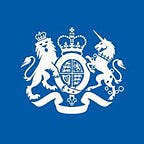Ask a Doctor: COVID and ethnic minorities
We caught up with Dr Raghib Ali, a consultant in acute medicine and independent advisor to the government on COVID and ethnicity, this week about the work he’s been doing throughout the pandemic to support government and find out why ethnic minorities have been disproportionately affected.
How have COVID disparities changed for ethnic minorities over the last year?
Early on in the first wave I was very aware myself of the excess risk that ethnic minorities were facing from COVID because I was working on the frontline.
I was seeing myself that patients were disproportionately coming from both Asian and Black communities.
What we’ve learnt over the last year is that the cause is increased risk. And it’s very much driven by the risk of infection. So, where you live — if you live in a densely populated urban area, you’re more likely to catch COVID. If you live in a multigenerational household you’re more likely to catch COVID. In particular jobs, particularly in healthcare, taxi drivers, security guards, people facing jobs — all more likely to catch COVID.
The key risk factors were where you live, the type of housing that you live in, and the types of jobs that you do.
What we’ve learnt over the last year is that for some of those you can reduce the risks. You can make sure that people who are the highest risk are not in those front-facing jobs. In terms of where you live and the type of household, that’s more difficult to fix, but we’ve found ways to tackle it.
We’ve prioritised vaccination for people who live in multigenerational households, and those who are living with vulnerable people.
How has science guided the Government’s response to COVID disparities?
The key insight really was to understand that the heightened risk of infection was causing higher risk of death to ethnic minorities. The priority was to try and reduce that risk of infection.
We found that between the first and second waves, particularly in areas like healthcare, we were able to reduce the risks for our workers.
By far the most important thing was the advent of the vaccine.
When the vaccine became available we were able to reduce risk across all minorities, particularly those in ethnic minority communities, and in multigenerational households where children and grandchildren might bring infection back to grandparents, who were then at higher risk of catching and dying of COVID.
What are the next steps?
We’re in a much better position now because of the vaccines. However, over the winter, the risk increases again. The best way you can really protect yourself and your family, particularly those who are high risk, is to take that vaccine and the booster dose.
We have a lot of evidence now that the benefits outweigh the risks.
What was your proudest achievement?
Back in March 2020, I have to admit I was in two minds about working on the frontline — mainly I do research — but I knew I had an opportunity to help the hospital I worked in. I was able to treat many patients with COVID.
The most fulfilling thing for me was being able to contribute on the frontline.
What do you want people to know?
It’s not too late to take the first and second doses. By being protected ourselves, we are able to protect our parents and grandparents.
It’s something I faced myself with my late father last year, who was in his 80s and at very high risk of COVID, and very scared of catching COVID. Sadly he died shortly before the vaccine came out, so he was not able to get the benefit of it.
Now we have the vaccine and it’s available to everyone.
